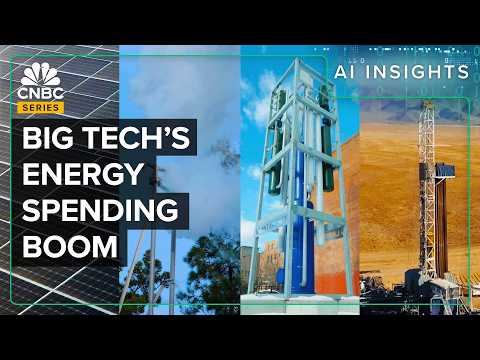Tech Giants Investing in Innovative Energy Solutions in the U.S.
Key Ideas
- Big Tech companies like Microsoft, Google, and Amazon are heavily investing in new energy solutions in the U.S.
- Start-ups focusing on hydrogen, small nuclear reactors, fusion, and geothermal energy are receiving significant funding.
- China is outspending the U.S. in certain areas, raising concerns about competition in the energy sector.
- The potential AI power crisis is prompting a reevaluation of energy needs and driving innovation for low-carbon, scalable, and affordable energy sources.
In the quest for sustainable and efficient energy solutions, Big Tech companies in the United States are embarking on a significant spending spree. This investment surge is fueled by the escalating power demands of data centers, largely driven by artificial intelligence (AI) technologies. Start-ups specializing in a diverse range of energy sources, including hydrogen, small nuclear reactors, fusion, and geothermal, are attracting substantial funding from prominent figures like OpenAI's Sam Altman, as well as tech giants such as Microsoft, Google, and Amazon.
While the U.S. is witnessing a resurgence in innovative energy projects, there are concerns about China outpacing the country in certain sectors. The emergence of DeepSeek and its efficiency breakthroughs has further intensified discussions around energy requirements and sustainability. CNBC's exploration behind the scenes of two companies implementing unconventional energy generation methods sheds light on the potential transformation in the energy landscape.
The article delves into the significance of hydrogen as a hopeful candidate for clean energy production, alongside advancements in nuclear technologies, geothermal energy, and solar power. The narratives of key industry leaders provide insights into the operational dynamics of these energy ventures and their potential to address the global energy challenges.
With the looming specter of an AI power crisis, there is a growing sense of urgency to achieve a balance between energy efficiency, environmental impact, and cost-effectiveness. The convergence of cutting-edge technologies and strategic investments aims to pave the way for a future where low-carbon energy solutions are not only sustainable but also scalable and economically viable.
